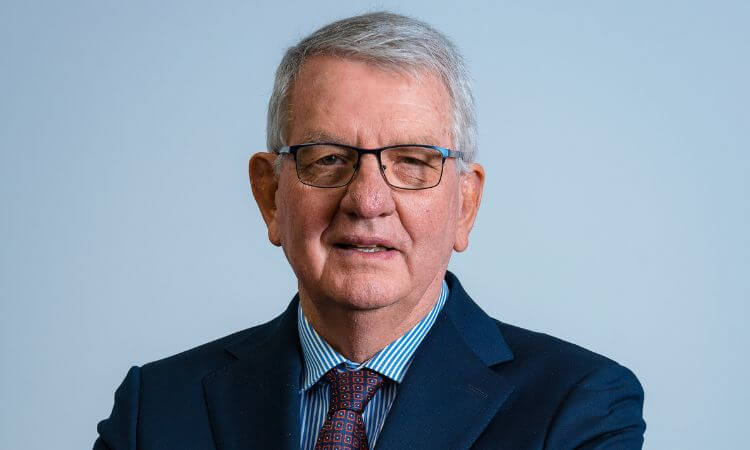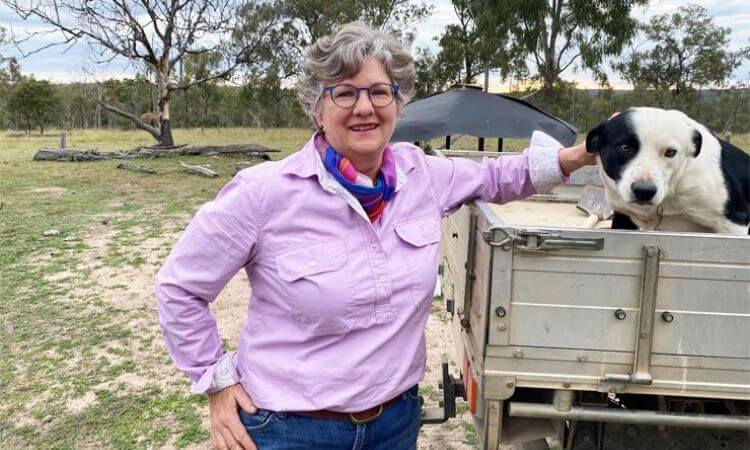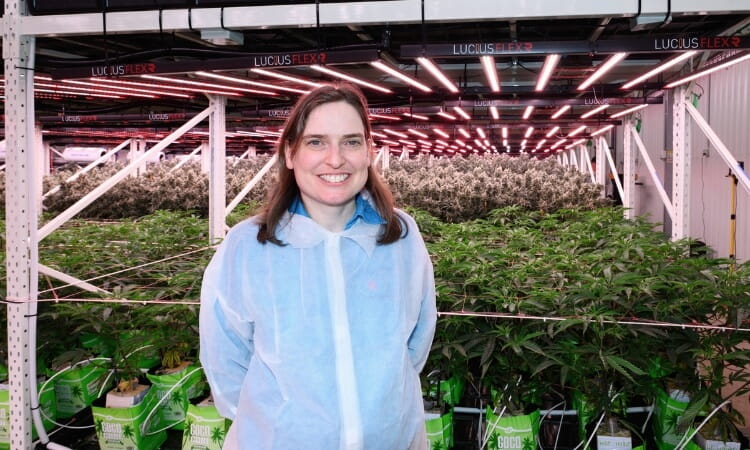Chair of the board: Mac Drysdale to join the UniSQ Thought Leadership event panel

Mac Drysdale is a prominent innovator in the agribusiness sector, dedicated to advancing sustainable practices and shaping the future of regional economies.
Hailing from a long-time grazing family in the Augathella area of Western Queensland, Mac operates grazing business that reflects his commitment to environmental stewardship.
With extensive experience in precision agriculture, agriculture, retail, construction and finance, he has been at the forefront of driving growth and transition in various industries and businesses.
Now, he’s set to join the panel for the UniSQ Thought Leadership Series event – The Future of Regional Development: Building Resilient Regions – at the UniSQ Toowoomba campus on the evening of 8 May. Register now to attend the free event.
We caught up with Mac ahead of the event to ask about his career.
With over 30 years of experience in corporate governance and organisational change, what do you see as the most crucial factors for successfully growing and managing companies in regional areas?
In any field, but especially in business and organisational settings, personal relationships are absolutely essential for success. It’s not just about the transactions or the formal roles people play; it’s about establishing trust and rapport and understanding the individual dynamics of each decision-maker. When you can identify the key influencers and decision-makers within an organisation or sector and build strong, genuine relationships with them, you create a foundation that makes collaboration smoother, decision-making more efficient, and outcomes more successful. Building these relationships takes time and patience, but they’re critical in ensuring that your objectives are understood, valued, and supported.
You’ve served on boards of both public and private companies across multiple industries. Does your approach to governance change when the company is based in or primarily serving regional communities?
My experience working with companies in cities was primarily with public organisations, which often come with a level of formality, strict regulatory oversight, and reporting requirements. The focus tends to be on accountability to shareholders and maintaining transparency with the public. On the other hand, working with private companies, especially in regional cities, presents a different dynamic. Private companies often offer more flexibility, with fewer bureaucratic layers and faster decision-making processes. The reporting requirements are generally less stringent, which can make it easier to focus on the core business. From a personal perspective, working with private companies is much more rewarding because the impact of your work is often more visible, and there’s more room for innovation and creativity in the approach.
Coming from a background in organic grazing, how have you integrated your knowledge of sustainable farming practices into your work in corporate governance and board leadership?
One of the key requirements in any professional environment is patience, particularly when it comes to effecting change. It’s crucial to understand that results don’t always come quickly. Whether you’re introducing new policies, changing company culture, or implementing new technologies, it often takes time before these efforts start to yield noticeable results. Being patient and persistent, while staying focused on long-term goals, allows you to remain motivated and ensure that you’re not discouraged by the slow pace of progress. Over time, these efforts are rewarded, but it requires a steady commitment to the process.
What are some of the unique challenges you’ve faced while chairing membership organisations, and how have those experiences shaped your leadership and decision-making style?
Working with membership organisations can be incredibly time-consuming. The need for constant communication, coordination, and the management of member expectations often demands a significant amount of time and effort. Additionally, you’re usually working with people who are deeply passionate about the field or cause the organisation is focused on. While passion is a great driving force, it can sometimes lead to challenges. Passionate individuals may not always embrace sound analytical thinking, as they may be more emotionally attached to their beliefs and the work they do. Striking the right balance between enthusiasm and rational decision-making is crucial for achieving practical, long-term success in these organisations.
What are the key opportunities for regional businesses in Australia over the next decade, and how can boards and leaders best position themselves to seize them?
The primary industries, including agriculture, mining, and tourism, are likely to remain the backbone of many economies for the foreseeable future. However, in order to navigate the complexities of a rapidly changing world, leaders in these sectors need to adopt a broader, more holistic view. It's not just about excelling in one’s own industry but also understanding macroeconomic trends, the implications of geopolitical issues, and shifts in social dynamics, such as changing workforce requirements. Leaders will also need to be aware of global best practices in their respective fields and ensure they’re implementing innovative, sustainable practices to remain competitive and relevant in an increasingly interconnected world.
And finally, what advice would you give to emerging leaders or entrepreneurs in regional areas looking to grow sustainable, future-focused businesses?
A critical issue facing many industries today, especially in regional and remote areas, is the shortage of labour. It’s a problem that’s well-known, but the level of action taken to address it often seems insufficient. Whether it’s in agriculture, construction, or other sectors that depend on a reliable workforce, the shortage of labour will stifle growth and innovation. The reasons for this shortage are multifaceted, ranging from population decline in rural areas to the difficulty of attracting skilled workers to these regions. While there’s widespread awareness of this issue, more concrete actions are needed, such as creating incentives for people to move to and work in these areas, improving the skills of local populations, and making the remote areas more attractive for workers. Until these issues are addressed in a more strategic and focused way, labour shortages will continue to be a major bottleneck for growth in these business.


